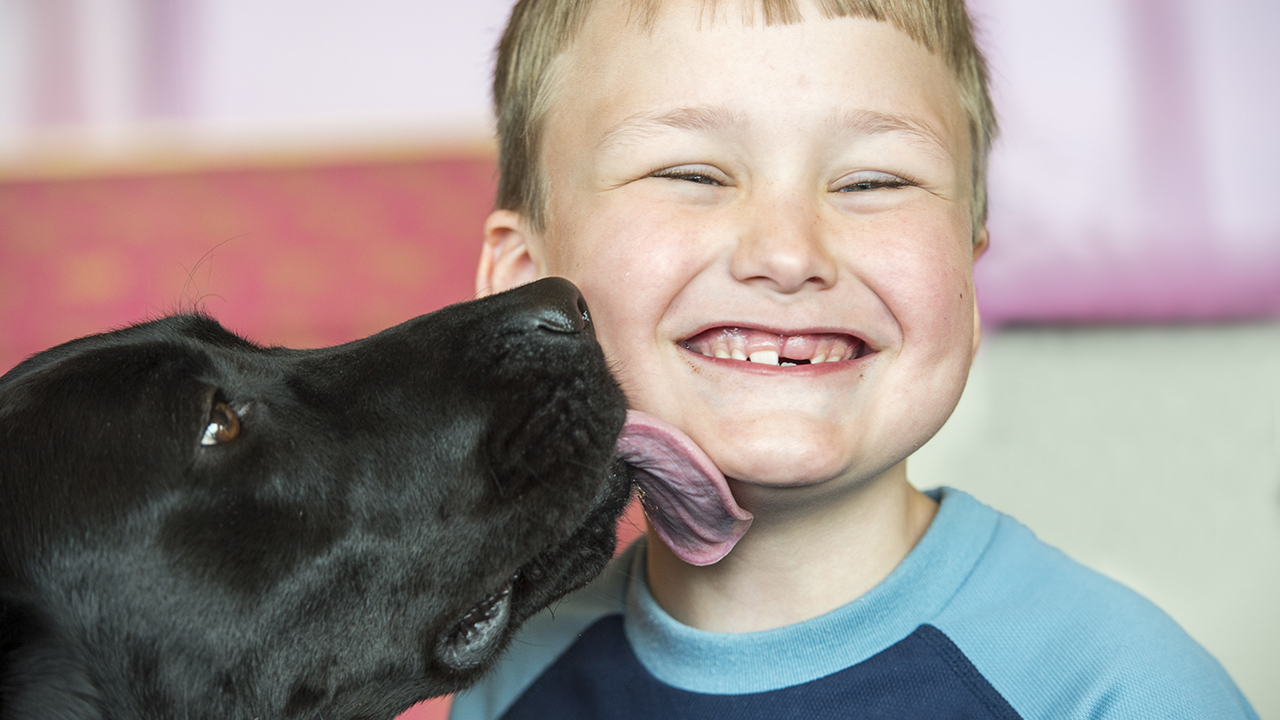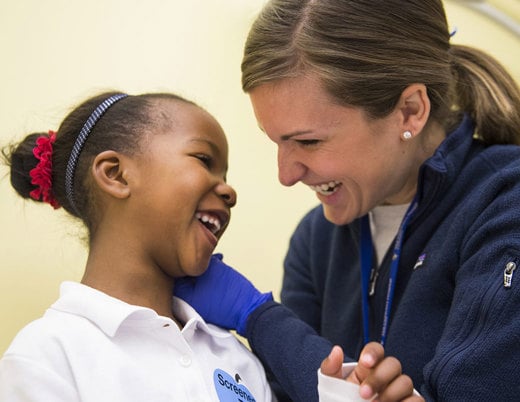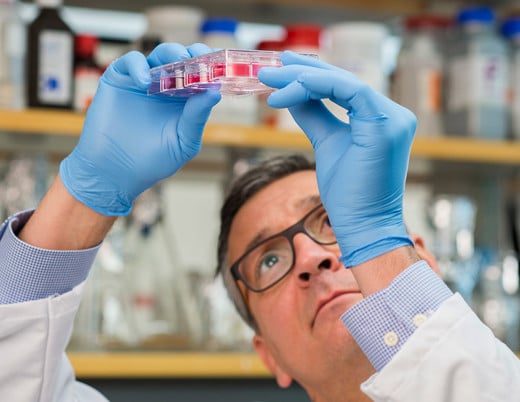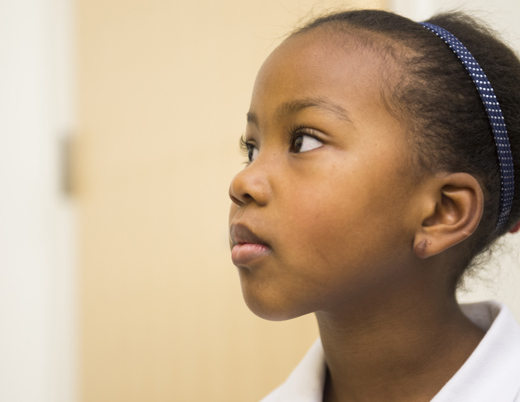Animal-assisted therapy can bring comfort and companionship to children who are hospitalized for serious health conditions. But cancer patients undergoing bone marrow transplant can't participate in traditional hospital pet visits because of their compromised immune systems.
Pediatric nurse researcher Anne Gillespie, a former veterinary technician, wasn't satisfied with that. In 2001, she created the Youth and Pet Survivors Program (YAPS) at the Center for Cancer and Blood Disorders at Children's Hospital Colorado.
YAPS matches children ages 7 to 18 with animal "pen pals," helping them bond without the associated health risks. In the age of smart phones and social media, these pen pals are forming heartfelt connections through old-fashioned letter-writing.
Connecting through common health challenges
One key in YAPS' success: matching each child with a dog or cat who's also undergoing cancer treatment.
Veterinary oncologists refer Gillespie to pet owners who undergo background checks and interviews and ultimately write in their pets' voices. Gillespie monitors their correspondence with children.
Gillespie keeps a book with pictures and biographies of each animal, including their diagnoses, treatments and interests. As children turn the pages, they get to know animals like black collie mix Fiona, Conrad the cat, Brody the Vizsla, Bood-ee the Corgi and Spree the yellow lab mix.
"The kids get a glimpse of the animal's personality, which helps them choose a pen pal," Gillespie says.
Once they're matched, conversation flows freely as children and animals exchange letters and photos. Here are some excerpts from their letters:
Dear (child),
I am so excited to be writing my first letter to you…I am a pretty crazy, stubborn dog. In fact, I am almost 13 years old and going strong…I wanted to tell you a little about my cancer. It is bone cancer…I had to have chemo, I think something like Carboplatin, these crazy words! Are you getting chemo too? …I am thinking about you. Thank you so much for picking me. I can't wait to hear from you.
Dear (dog),
I'm so happy to be writing to you! From what I read we both have a lot in common. I have osteosarcoma in my left femur. I had to have surgery…after my surgery, the doctors took a closer look at the bone and found that 99.99% of the cancer was killed! I had three different types of chemo; one makes me nauseous…someday I will publish a book about what I'm going through.
Dear (cat),
It's nice to hear from you…I'm on my last round of chemo. My absolute neutrophil count (ANC) is zero, so I just have to get all of my counts up. Then I am done. We both kicked cancer's butt!
"Kids feel that animals don't judge them, that the pets are safe, accepting and loving," Gillespie says. "One teenage girl told us that she shares things with her dog pen pal she can't share with her friends. Her letters read like pages in a diary. She opened up about what she was going through and how hard it was with her friends at school."
Many families keep scrapbooks of their pen pals' letters, and some choose to meet them in person. Some even stay in touch with YAPS years later.
"Our very first pen pal we matched in 2001 follows YAPS on Facebook, and she commented on one of our posts that she was so proud to be our first participant," Gillespie says. "She was 13 at the time, and now she's earned a doctorate in psychology. There's nothing more gratifying than knowing YAPS made a lifelong impact."
Pet owners find the program rewarding, too. "One dog owner said, 'It adds a new dimension to my dog's life,' and another said, 'It's the most fulfilling thing I've ever been involved in,'" Gillespie says. "YAPS gives meaning to the pet's illness by giving back to a child."
Exploring an emerging field
After successfully operating YAPS for nearly two decades, Gillespie wanted to validate the program's benefits using formal research methods. YAPS is the only known virtual animal-assisted therapy program of its kind.
Animal-assisted therapy improves quality of life for hospitalized pediatric patients by increasing pleasure and distraction while decreasing fear and pain. But research in the field is in its infancy, with no published studies on programs like YAPS to date.
Gillespie conducted a study to explore the implications of this emerging field by evaluating the experiences of patients in YAPS. The project was part of Gillespie's pediatric nurse research fellowship at Children's Colorado, in partnership with the University of Colorado.
Over 15 months in 2017 to 2018, Gillespie interviewed eight girls and seven boys aged 7 to 16, at different stages of participation. Here are some of their responses:
- "I love animals, and I think it will take my mind off my osteosarcoma."
- My pen pal "has a lot in common with me. We both have osteosarcoma. We're both 11-and-a-half years old."
- "We talk a lot about stuff that… I feel like I couldn't talk about with anybody else. Because they just wouldn't understand. Like needles and stuff."
- "I would tell other kids that a pen pal is really great. They send perfect letters. They send funny letters."
This research will serve as the foundation for Gillespie's doctoral dissertation. Its conclusion: YAPS transcends circumstances, providing companionship and comfort to its participants.
Gillespie hopes that one day soon, YAPS will serve as a new model for animal-assisted therapy in pediatric care.
"I'm dedicating my life to expanding the impact of YAPS," Gillespie says. "We need to reach more children who are hospitalized with chronic illness, and research and philanthropic support will make that happen."





 720-777-0123
720-777-0123










